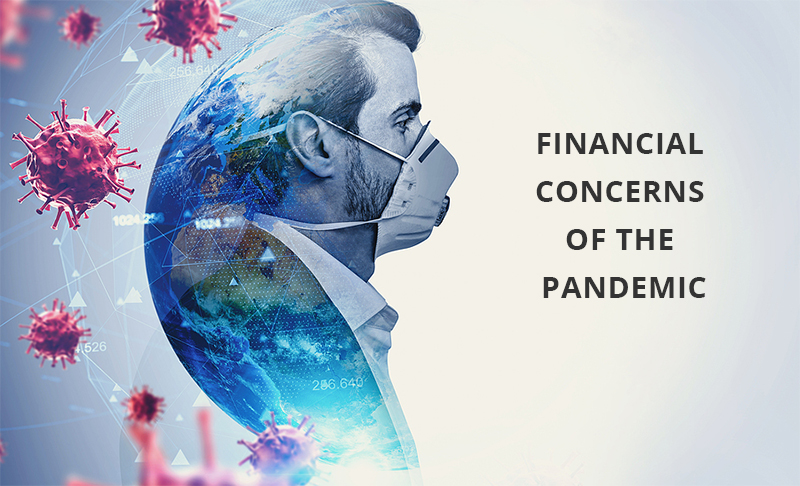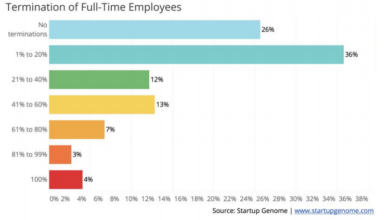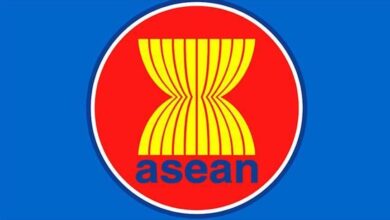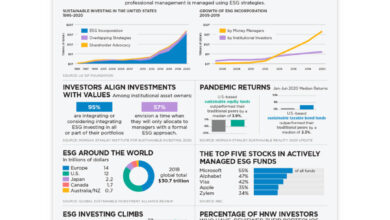
CIMA Ethics Pandemic Financial Struggles
CIMA ethics financial struggles amid coronavirus pandemic highlight the ethical dilemmas faced by financial professionals during the pandemic’s economic turmoil. The pandemic significantly disrupted traditional financial practices, leading to complex ethical considerations for CIMA members and organizations alike. From navigating shifting financial reporting standards to prioritizing ethical principles in times of uncertainty, this post delves into the challenges and responses.
The article examines the various ways the pandemic disrupted financial practices, comparing pre- and pandemic-era financial reporting. It analyzes how different sectors experienced varying financial impacts and identifies the pressures on institutions and individuals. Further, it explores the ethical considerations for financial professionals during distress, offering a framework for ethical decision-making under pressure. Real-life case studies illustrate ethical dilemmas faced by CIMA members, along with lessons learned and consequences of unethical actions.
Looking ahead, the post discusses future ethical challenges, the importance of continuous professional development, and the evolving role of emerging technologies. Finally, it offers practical strategies for maintaining ethical conduct during financial struggles, outlining the role of leadership and best practices. The analysis also considers the broader impact on stakeholders beyond CIMA members, including investors and employees.
Introduction to CIMA Ethics and Financial Struggles
The Chartered Institute of Management Accountants (CIMA) sets a high standard for ethical conduct for its members, crucial in the financial sector, especially during economic uncertainty. CIMA’s ethical framework emphasizes integrity, objectivity, professional competence and due care, confidentiality, and professional behavior. Adhering to these principles is paramount for maintaining public trust and ensuring the stability of financial markets, particularly when businesses face significant challenges.
The COVID-19 pandemic significantly impacted global economies, creating unique financial pressures for organizations across industries. This led to a complex interplay of ethical dilemmas for CIMA members tasked with navigating these turbulent times.
CIMA’s Ethical Framework
CIMA’s code of ethics provides a comprehensive guide for members, outlining their responsibilities and expected behavior. The core principles are foundational to sound financial practice and professional conduct. These principles include honesty, fairness, and responsibility in all dealings. Integrity ensures that actions are consistent with the highest moral standards. Objectivity requires impartiality and freedom from bias in decision-making.
Professional competence and due care emphasize the importance of maintaining professional skills and exercising diligence. Confidentiality demands the safeguarding of sensitive financial information. Finally, professional behavior promotes ethical conduct in all interactions and dealings.
Financial Challenges During the Pandemic
The coronavirus pandemic caused significant disruptions across the global economy. Businesses faced numerous challenges, including supply chain disruptions, reduced consumer spending, and increased operating costs. Many companies experienced a sharp decline in revenue, impacting profitability and liquidity. Some industries were hit harder than others, leading to job losses and increased financial distress. These circumstances created considerable pressure on financial decision-making.
Ethical Dilemmas for CIMA Members
The pandemic’s economic effects presented several ethical dilemmas for CIMA members. One common challenge was the pressure to maintain financial performance amidst declining revenues. This could lead to unethical accounting practices, such as manipulating financial statements to present a more positive picture. Another ethical challenge arose when companies faced difficulties in meeting their financial obligations, potentially leading to breaches of contracts or disputes with creditors.
Members were also challenged to assess the financial health of their clients, considering the implications of potential insolvency and the need for transparency in communication.
Examples of Ethical Dilemmas
A manufacturing company, facing declining demand due to pandemic restrictions, might consider delaying or omitting reporting of certain expenses. This could present a conflict between short-term financial pressures and the need to provide accurate financial information to stakeholders. Similarly, a small business owner, struggling to meet loan repayments, might be tempted to hide the true extent of their financial difficulties from lenders.
This situation highlights the importance of ethical decision-making in maintaining trust and transparency.
Impact of the Pandemic on Financial Practices
The COVID-19 pandemic dramatically reshaped global financial landscapes, forcing businesses and individuals alike to adapt to unprecedented challenges. Traditional financial practices, once considered stable and predictable, were disrupted by lockdowns, supply chain disruptions, and shifts in consumer behavior. This upheaval necessitated a reassessment of financial reporting standards and triggered significant stress on various sectors.The pandemic’s impact extended far beyond the immediate economic fallout.
It highlighted vulnerabilities in existing systems and accelerated the adoption of new technologies and strategies. Understanding the adjustments and challenges within the financial sector is crucial for comprehending the long-term implications of the pandemic.
For descriptions on additional topics like cima ethics confidentiality rules, please visit the available cima ethics confidentiality rules.
Disruptions to Traditional Financial Practices
The pandemic introduced a multitude of disruptions to established financial practices. Remote work became the norm, necessitating adjustments to accounting processes and internal controls. Supply chain disruptions led to fluctuating input costs and production delays, impacting profitability and cash flow projections. Changes in consumer behavior, with increased reliance on online shopping and digital payment methods, also altered financial transactions and reporting.
These adjustments required significant adaptations in financial management strategies.
Comparison of Pre-Pandemic and Pandemic-Era Financial Reporting Standards
Pre-pandemic financial reporting standards, while comprehensive, often lacked provisions for unprecedented events. The pandemic’s unique challenges prompted a reassessment and, in some cases, revisions to reporting standards. These revisions aimed to reflect the exceptional circumstances and ensure that financial statements accurately portrayed the impact of the pandemic. The IFRS (International Financial Reporting Standards) and GAAP (Generally Accepted Accounting Principles) frameworks, while designed for flexibility, were challenged by the rapid and multifaceted nature of the crisis.
Impact on Different Sectors’ Financial Health
The pandemic’s impact varied significantly across different sectors. Industries heavily reliant on physical interaction, such as hospitality and retail, experienced a steep decline in revenue. Conversely, sectors like e-commerce and technology saw growth due to increased demand for online services. The healthcare sector faced immense pressure to manage the crisis, impacting their financial stability. These divergent impacts underscore the unequal distribution of the pandemic’s economic effects.
Potential Pressures on Financial Institutions and Individuals
The pandemic exerted significant pressure on financial institutions. Increased loan defaults, reduced investment activity, and fluctuating market conditions posed significant challenges. Similarly, individuals faced job losses, reduced incomes, and increased debt burdens. These factors contributed to heightened stress levels and necessitated a focus on financial resilience.
Contrasting Financial Performance of Various Sectors
| Sector | Pre-Pandemic Financial Performance (2019) | Pandemic-Era Financial Performance (2020-2021) |
|---|---|---|
| Retail | Stable growth with moderate fluctuations | Significant decline in revenue due to store closures and reduced consumer spending |
| Technology | Steady growth with expansion in online services | Significant increase in revenue and user base as consumers transitioned online |
| Healthcare | Steady growth, focused on preventative care and treatment | Significant increase in expenses due to treatment and preventative measures; substantial revenue due to increased patient load and demand |
| Hospitality | Steady growth | Sharp decline in revenue as lockdowns reduced customer traffic |
| Manufacturing | Moderate growth | Fluctuating revenue due to supply chain disruptions and global lockdowns |
Ethical Considerations During Financial Crises: Cima Ethics Financial Struggles Amid Coronavirus Pandemic

Navigating financial distress requires a heightened awareness of ethical considerations. The pressures of economic downturns can tempt individuals and organizations to compromise their principles, leading to potentially disastrous consequences. This is especially true for financial professionals, whose actions often impact the wider economy and individual livelihoods. Maintaining ethical standards during crises is crucial for rebuilding trust and fostering a resilient financial system.Ethical decision-making in times of financial hardship demands a profound understanding of the principles underpinning sound financial practices.
The principles of integrity, objectivity, professional competence and due care, confidentiality, and professional behavior, as Artikeld in the CIMA Code of Ethics, become even more critical in navigating economic uncertainty.
Ethical Considerations for Financial Professionals
Financial professionals face unique challenges when dealing with financial distress. Maintaining objectivity and avoiding conflicts of interest are paramount. This includes refusing to prioritize personal gain over the best interests of clients, stakeholders, and the organization. Objectivity ensures that decisions are based on sound judgment and factual analysis, rather than emotional responses to the crisis. Transparency in decision-making processes is also vital.
Framework for Ethical Decision-Making Under Pressure
A robust framework for ethical decision-making during crises is essential. This framework should incorporate several key steps:
- Identify the ethical dilemma:
- Gather relevant information:
- Identify the stakeholders and their interests:
- Evaluate the ethical implications of each possible course of action:
- Select and implement the best course of action:
- Monitor and evaluate the outcome:
Understanding the situation and recognizing the conflicting values involved is the first step. Consider the potential impact on all stakeholders, including clients, employees, and the wider community. For example, a bank considering a loan restructuring needs to weigh the interests of the borrower against the bank’s own financial stability.
Comprehensive data collection is crucial to making informed decisions. This includes analyzing financial statements, market trends, and industry best practices. Understanding the context of the financial distress is paramount.
Carefully consider the perspectives of all parties affected by the decision. This includes creditors, debtors, employees, and the broader community. A thorough stakeholder analysis helps in navigating complex situations.
Carefully weigh the potential consequences of each decision, considering the principles of integrity, objectivity, and fairness. Use a cost-benefit analysis, but consider the ethical implications beyond mere financial gains.
Choosing the most ethically sound option and implementing it effectively is vital. Transparency and communication are key components of this step.
After implementation, assess the impact of the decision on all stakeholders. Adapt strategies as needed to address any unforeseen challenges or ethical concerns. Regular monitoring and evaluation are essential for learning and improvement.
Prioritizing Ethical Principles in Economic Uncertainty, Cima ethics financial struggles amid coronavirus pandemic
CIMA members should prioritize the ethical principles Artikeld in the CIMA Code of Ethics during periods of economic uncertainty. This involves adhering to the principles of integrity, objectivity, professional competence and due care, confidentiality, and professional behavior. A commitment to these principles fosters trust and resilience in the financial system. For instance, a CIMA member working for an investment bank must prioritize the best interests of their clients during a market downturn, even if it means making difficult decisions that may be unpopular.
Transparency and Accountability in Managing Financial Struggles
Transparency and accountability are crucial for managing financial struggles effectively and ethically. Open communication with stakeholders about the challenges faced and the strategies implemented fosters trust and confidence. Providing clear and concise financial reports is essential, especially during a crisis. Regular reporting on the progress of recovery plans enhances accountability.
Ethical Decision-Making Approaches
| Aspect | Normal Times | Crises |
|---|---|---|
| Decision Focus | Maximizing profitability and shareholder value | Balancing stakeholder interests, preserving stability, and restoring trust |
| Risk Tolerance | Moderate risk-taking for potential gains | Minimizing risk to avoid further damage |
| Communication Style | Proactive communication for market positioning | Transparent and timely communication to address concerns and maintain confidence |
| Ethical Emphasis | Adherence to established procedures and regulations | Prioritizing ethical principles, even in challenging situations |
Case Studies of Ethical Dilemmas
Navigating financial hardship during the pandemic presented unprecedented ethical challenges for CIMA members. The pressure to maintain profitability, safeguard jobs, and comply with regulations often collided with personal values and professional responsibilities. These situations demanded careful consideration of ethical principles and the long-term consequences of choices made under duress.
Examples of Ethical Dilemmas Faced by CIMA Members
CIMA members faced a range of ethical dilemmas during the pandemic. These included situations where maintaining financial stability conflicted with upholding ethical standards. For example, some companies faced the dilemma of choosing between prioritizing employee well-being and short-term financial gains. Another challenge arose when businesses needed to make rapid decisions regarding layoffs or salary reductions.
Resolution of Ethical Dilemmas
The ethical resolution of these dilemmas varied greatly. Some companies successfully navigated these challenges by prioritizing transparency and fairness in their decision-making processes. They communicated openly with stakeholders, seeking to mitigate the negative impact of difficult choices. Other companies struggled to find ethical solutions, opting for actions that may have seemed expedient but ultimately harmed their long-term reputation and stakeholder relationships.
Lessons Learned from Real-Life Scenarios
Several key lessons emerged from these experiences. The need for proactive ethical frameworks in times of crisis was paramount. Companies that had pre-existing codes of conduct and ethical guidelines were better positioned to navigate the complexities of the pandemic. Moreover, the importance of transparent communication and stakeholder engagement became evident. Companies that effectively communicated their challenges and solutions often maintained stronger relationships with employees, customers, and investors.
Impact of Decisions on Organizations
The ethical choices made by organizations during the pandemic had significant impacts. Companies that prioritized ethical conduct often experienced a boost in reputation and trust. This led to enhanced stakeholder relationships, improved employee morale, and greater investor confidence. Conversely, companies that compromised ethical standards faced reputational damage, loss of trust, and potential legal repercussions.
Consequences of Unethical Actions
Unethical actions during financial struggles can have severe consequences. Loss of trust from stakeholders is a common outcome, often leading to decreased sales, investor reluctance, and damage to the company’s brand. Furthermore, legal actions, regulatory penalties, and long-term reputational damage can follow. Ultimately, ethical breaches can significantly undermine the long-term viability of the organization.
Future Trends and Implications

The COVID-19 pandemic significantly impacted financial landscapes, forcing businesses and individuals into unprecedented struggles. Understanding the potential future ethical challenges arising from these financial pressures is crucial for CIMA members. This requires a proactive approach to ethical considerations and a commitment to continuous professional development.The future will undoubtedly bring new and complex ethical dilemmas related to financial hardship.
These challenges will necessitate a deeper understanding of financial sustainability, responsible lending practices, and the evolving role of technology in financial decision-making. A critical element in navigating these challenges is adaptability and a willingness to continuously update professional knowledge.
Potential Future Ethical Challenges
The pandemic exposed vulnerabilities in existing financial systems and practices. Potential future ethical challenges include navigating the increasing complexity of financial instruments, the need for greater transparency in algorithmic trading, and the potential for widening wealth gaps exacerbated by financial crises. The focus will need to shift from short-term gains to long-term sustainability, which might involve ethical dilemmas in restructuring and debt management.
Importance of Continuous Professional Development
In a rapidly evolving financial world, continuous professional development (CPD) is essential for CIMA members. CPD will equip members with the knowledge and skills to identify and address emerging ethical challenges. Staying abreast of the latest regulations, financial technologies, and industry best practices is vital. CPD ensures that CIMA members remain competent and ethical in their professional roles, helping them navigate complex financial situations with confidence and integrity.
Emerging Technologies and Financial Ethics
Emerging technologies like AI and machine learning are rapidly transforming financial services. These technologies have the potential to improve efficiency and decision-making, but they also introduce new ethical considerations. For example, algorithmic trading raises concerns about fairness, transparency, and potential biases in automated decision-making processes. CIMA members must be prepared to engage with these technologies in an ethical and responsible manner.
This requires understanding the potential risks and benefits, and developing strategies to mitigate potential harm.
Anticipated Evolution of Ethical Considerations in the Financial Sector
| Aspect | Current Status | Anticipated Future Evolution |
|---|---|---|
| Transparency in financial reporting | Generally good, but room for improvement | Increased focus on data-driven reporting and greater transparency in financial modelling |
| Algorithmic trading ethics | Limited regulations, growing concern | Development of robust regulatory frameworks to ensure fairness and transparency |
| Sustainable finance | Growing importance | Integration of environmental, social, and governance (ESG) factors into financial decision-making |
| Ethical considerations in Fintech | Emerging challenges | Development of ethical guidelines and frameworks for the responsible use of Fintech |
Role of Regulatory Bodies in Mitigating Ethical Risks
Regulatory bodies play a crucial role in establishing and enforcing ethical standards in the financial sector. In the face of future crises, regulatory bodies need to be proactive in adapting to evolving challenges. This includes developing robust frameworks for assessing and mitigating ethical risks associated with emerging technologies and financial instruments. Stronger oversight and enforcement of ethical codes will be vital in maintaining public trust and stability during times of financial strain.
Robust regulatory frameworks, informed by lessons from past crises, will be essential in preventing future ethical lapses and safeguarding the financial system.
Strategies for Maintaining Ethical Conduct
Navigating financial hardship, especially during a crisis like the pandemic, can tempt individuals and organizations to compromise ethical standards. Maintaining ethical conduct, however, is crucial for long-term sustainability and trust. This section explores practical strategies for upholding ethical principles in challenging financial times, aligning them with the CIMA code of ethics, and emphasizing the pivotal role of leadership in fostering an ethical organizational culture.
Practical Strategies for Maintaining Ethical Conduct
Upholding ethical principles during financial struggles requires proactive strategies. These include meticulous adherence to established policies and procedures, fostering open communication within teams and with stakeholders, and actively seeking external guidance when facing complex ethical dilemmas. Organizations should cultivate a culture of transparency and accountability to build trust and confidence among all parties.
Alignment with the CIMA Code of Ethics
The CIMA code of ethics provides a framework for ethical decision-making. Strategies for maintaining ethical conduct must align with these principles. This encompasses upholding integrity, objectivity, professional competence and due care, confidentiality, and professional behavior. Adhering to these principles strengthens the organization’s reputation and fosters public trust.
Leadership’s Role in Promoting Ethical Behavior
Leaders play a critical role in setting the tone for ethical conduct within organizations. Leaders must model ethical behavior, communicate the importance of ethical principles, and establish clear policies and procedures that support ethical decision-making. A strong ethical framework from the top down is crucial for maintaining ethical standards throughout the organization.
Examples of Best Practices by Successful Organizations
Many organizations have demonstrated best practices in maintaining ethical conduct during financial difficulties. For example, some companies have proactively communicated with stakeholders about financial challenges, maintaining transparency and fostering trust. Others have implemented robust internal controls and audit procedures to ensure financial integrity. These actions demonstrate a commitment to ethical conduct even in the face of adversity.
Actionable Steps for CIMA Members
| Actionable Step | Explanation |
|---|---|
| Review and adhere to the CIMA code of ethics | Thoroughly understanding and applying the CIMA code of ethics is fundamental to maintaining ethical conduct in all professional activities. |
| Establish clear communication channels | Open communication about financial struggles and potential ethical dilemmas with stakeholders, including employees and clients, builds trust and fosters transparency. |
| Seek guidance from professional bodies | Consult CIMA or other relevant professional bodies for advice and support in navigating ethical dilemmas. |
| Implement robust internal controls | Put in place strong internal controls and procedures to prevent financial misconduct and ensure ethical practices. |
| Document all decisions and rationale | Maintain comprehensive records of all decisions and their justifications to ensure accountability and transparency. |
Impact on Stakeholders (Beyond CIMA Members)

The COVID-19 pandemic’s economic fallout reverberated across various stakeholder groups, creating unprecedented financial hardship and raising complex ethical dilemmas for businesses and individuals alike. Understanding the unique challenges faced by each stakeholder group, from investors to employees, is crucial for navigating the complexities of ethical decision-making in such turbulent times. Ethical considerations extended beyond simply adhering to established accounting principles; they encompassed a broader societal responsibility to ensure fairness and resilience in the face of crisis.The pandemic significantly disrupted the financial stability of numerous organizations, forcing them to make difficult choices impacting their stakeholders.
These choices often required balancing the needs of different groups, sometimes leading to difficult trade-offs. This intricate web of interconnected responsibilities demanded a nuanced understanding of ethical implications, not just for CIMA members, but for all involved.
Impact on Investors
Investors faced significant uncertainty and potential losses during the pandemic. Market volatility and economic downturns directly impacted investment portfolios. Companies experiencing financial struggles had to communicate transparently about their financial situation, providing accurate information and forecasts to investors. Ethical breaches in this context often manifested as misleading financial reporting or withholding critical information. The long-term implications of such actions could include reputational damage, loss of investor confidence, and potential legal ramifications.
Maintaining investor trust through honesty and clear communication is vital during financial hardship. This fosters a more resilient investment landscape for the future.
Impact on Employees
The pandemic forced many organizations to adapt to new work models, impacting employee well-being and job security. Ethical considerations regarding employee treatment during financial crises included ensuring fair compensation, maintaining employment stability, and offering support to employees facing personal challenges. Companies had to navigate complex decisions about layoffs, salary reductions, and the implementation of flexible work arrangements. These choices directly affected employee morale and job satisfaction, which could influence their long-term commitment and productivity.
Impact on Customers
Maintaining customer trust and loyalty is critical for any business, especially during a crisis. Ethical considerations extended to the provision of consistent and transparent communication regarding product availability, service delivery, and pricing changes. Companies that prioritize customer well-being during economic hardship often see greater loyalty and advocacy. This is especially important for businesses dependent on consumer spending.
The long-term implications of ethical customer relations are positive, fostering customer retention and loyalty.
Impact on Suppliers
The pandemic created supply chain disruptions, impacting suppliers’ ability to deliver goods and services. Ethical considerations included ensuring fair and timely payments, maintaining open communication channels, and offering support during challenging times. Maintaining ethical relationships with suppliers fosters long-term stability and resilience for all parties involved. A supplier’s ethical conduct during a crisis demonstrates a commitment to mutually beneficial partnerships.
This long-term commitment is critical for navigating future disruptions.
Interconnectedness of Stakeholder Ethical Considerations
The ethical considerations for different stakeholders are interconnected. A company’s actions impacting employees, for example, can influence investor confidence and customer loyalty. A transparent and ethical approach to financial reporting, which addresses the needs of all stakeholders, is critical during financial hardship. The interconnected nature of these considerations highlights the importance of a holistic approach to ethical decision-making, recognizing the ripple effects of choices on the entire stakeholder network.
Outcome Summary
In conclusion, CIMA ethics financial struggles amid coronavirus pandemic underscore the crucial role of ethical conduct in the financial sector, especially during crises. The pandemic exposed vulnerabilities and demanded adaptation in financial practices and ethical decision-making. The article emphasizes the interconnectedness of stakeholders and the need for a proactive approach to ethical considerations in the face of future uncertainties.
Maintaining ethical standards requires ongoing vigilance, adaptation, and a commitment to transparent and accountable practices.





